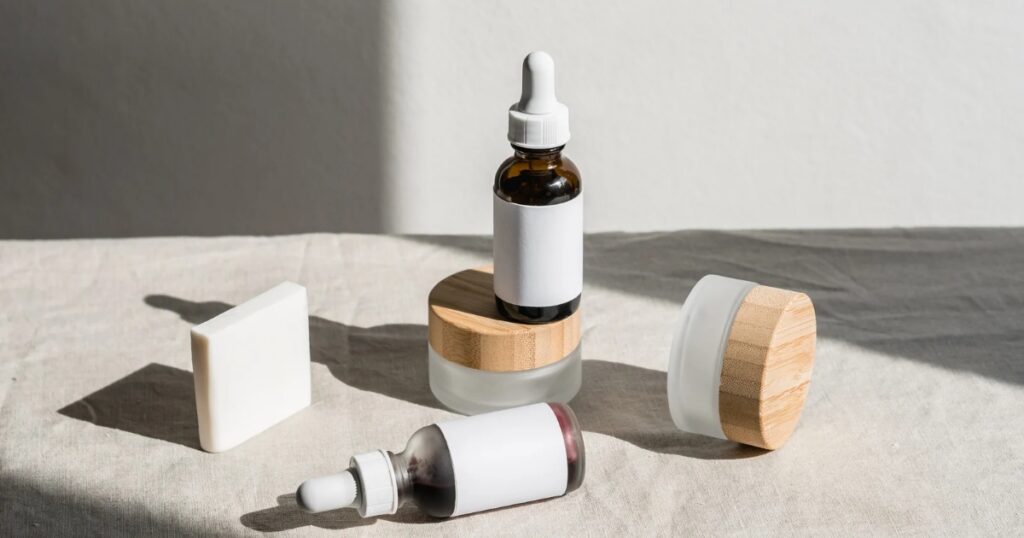Discover the Top Hydrating Serum Benefits

Boost your skin with hydrating serum! Deep moisturization, improved texture & reduced fine lines for all skin types.
Introduction
When it comes to maintaining healthy, glowing skin, hydration is key. But what exactly is a hydrating serum, and why is it so crucial for your skincare routine? A hydrating serum is a specialized skincare product designed to deliver moisture deep into your skin. Unlike regular moisturizers, these serums are lightweight and packed with potent ingredients that can penetrate deeper layers of your skin to provide lasting hydration. Hydration is not just about preventing dryness; it’s about achieving a plump, youthful, and radiant complexion.
Key Benefits of Hydrating Serums
Deep Moisturization
One of the primary benefits of hydrating serums is their ability to deliver deep moisturization. These serums often contain high concentrations of active ingredients that work to lock in moisture and prevent water loss from the skin. Ingredients like hyaluronic acid and glycerin are commonly used in hydrating serums for their exceptional ability to attract and retain moisture. When applied, these serums penetrate the skin barrier more effectively than many other products, ensuring that moisture reaches the deeper layers of your skin.
Improved Skin Texture
Regular use of a hydrating serum can significantly improve the texture of your skin. If you have rough patches or uneven skin texture, a hydrating serum can help smooth things out. By providing the skin with essential moisture, these serums enhance elasticity and give your skin a more supple and even appearance. Over time, you’ll notice a reduction in those dry, flaky patches, and your skin will feel softer and more refined.
Reduction of Fine Lines and Wrinkles
Hydrating serums can also play a crucial role in reducing the appearance of fine lines and wrinkles. When your skin is adequately hydrated, it appears plumper and more elastic, which can diminish the look of fine lines and wrinkles. Ingredients like hyaluronic acid, which draws moisture into the skin, help maintain skin’s youthful elasticity and smoothness. For those looking to combat signs of aging, hydrating serums can be a valuable addition to your skincare routine.

Brightening the Skin
Hydration is not only about moisture; it’s also about achieving a radiant complexion. Well-hydrated skin tends to look brighter and more vibrant. Hydrating serums often contain additional ingredients like Vitamin C, which can enhance skin brightness and even out skin tone. By improving skin hydration, these serums contribute to a healthier, more luminous appearance.
Understanding Ingredients in Hydrating Serums
Hyaluronic Acid
Hyaluronic acid is a star ingredient in many hydrating serums. It’s a naturally found compound in the body that draws in and locks in moisture. When used on the skin, it helps to smooth and plump, minimizing the look of fine lines. This ingredient is renowned for its capacity to retain up to 1,000 times its weight in water, making it exceptionally powerful for intense hydration.
Glycerin
Glycerin is a key component in hydrating serums. As a humectant, it attracts moisture from the air into your skin. Glycerin works to keep your skin moisturized by creating a protective layer that reduces water loss. It’s especially useful for ensuring long-lasting hydration throughout the day.
Vitamin C
Vitamin C is not only an antioxidant but also a great ingredient for hydration. It helps brighten the skin and even out skin tone. Many hydrating serums include Vitamin C to enhance radiance and provide additional skin benefits. Choosing a serum with a stable form of Vitamin C can maximize its effectiveness.

How to Choose the Right Hydrating Serum for Your Skin Type
For Dry Skin
If you have dry skin, look for hydrating serums with rich, emollient ingredients like hyaluronic acid, glycerin, and squalane. These ingredients provide intense moisture and help combat dryness. Serums that are labeled as “nourishing” or “moisturizing” are often suitable for dry skin.
For Oily Skin
For oily skin, opt for lightweight, non-comedogenic serums that provide hydration without adding excess oil. Ingredients like hyaluronic acid and niacinamide are excellent choices for oily skin as they hydrate without clogging pores. Gel-based serums can also be a good option as they offer hydration without feeling greasy.

For Sensitive Skin
Sensitive skin requires gentle, soothing ingredients to avoid irritation. Look for hydrating serums with calming ingredients like aloe vera, chamomile, or calendula. It’s also important to choose serums that are free from fragrances and harsh chemicals to minimize the risk of irritation.
How to Incorporate a Hydrating Serum into Your Skincare Routine
Morning Routine
In the morning, apply your hydrating serum after cleansing and before applying sunscreen. This will help ensure that your skin remains hydrated throughout the day and that your sunscreen can be absorbed effectively. A few drops of serum are usually sufficient—gently pat it onto your face and neck for best results.
Night Routine
Using a hydrating serum at night can be particularly beneficial as your skin repairs itself while you sleep. After cleansing and applying any other treatments (like retinol or exfoliants), apply your serum and follow with a moisturizer to lock in hydration. This nighttime application can help your skin stay plump and hydrated while you rest.
Common Mistakes to Avoid with Hydrating Serums
Overuse of Serum
Using too much serum can sometimes lead to a sticky or overly greasy feeling. It’s essential to follow the recommended usage instructions and apply only a few drops. Overuse doesn’t necessarily equate to better results and can sometimes cause more harm than good.
Incorrect Application
Proper application of a hydrating serum is crucial for its effectiveness. Always apply serums to clean, dry skin and avoid rubbing or pulling on your skin. Instead, gently pat the serum onto your face, allowing it to absorb fully before applying other products.

Conclusion
Incorporating a hydrating serum into your skincare routine can have a transformative effect on your skin. From deep moisturization and improved texture to the reduction of fine lines and a brighter complexion, the benefits of hydrating serums are numerous. Whether you’re dealing with dryness, oily skin, or sensitivity, there’s a hydrating serum out there to meet your needs. Don’t overlook this powerhouse product; it could be the key to achieving your best skin yet.
FAQs
1. What is the best time to apply a hydrating serum?
– The best time to apply a hydrating serum is after cleansing and before applying sunscreen in the morning or before your nighttime moisturizer in the evening.
2. Can I use a hydrating serum with other active ingredients?
– Yes, hydrating serums can be used with other active ingredients. However, it’s fundamental to present new items bit by bit and screen your skin for any indications of disturbance.
3. How often should I use a hydrating serum?
– Most people benefit from using a hydrating serum once or twice daily, depending on their skin type and the specific product’s instructions.
4. Are hydrating serums suitable for all skin types?
– Hydrating serums can be suitable for all skin types. The key is to choose a formula




